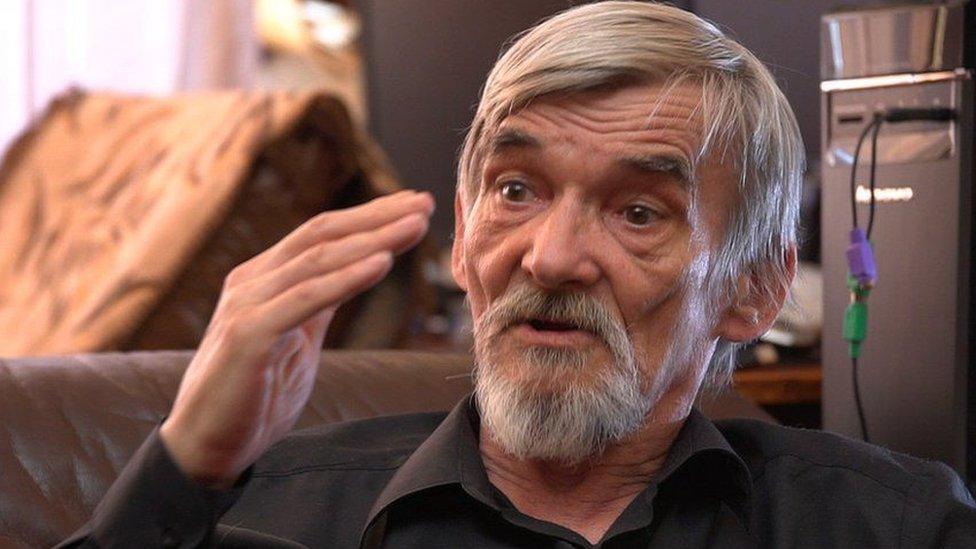Yuri Dmitriyev: Russian historian's sex abuse sentence increased
- Published

The historian had been sentenced to three and a half years in July
A Russian historian known for exposing Soviet dictator Joseph Stalin's crimes has had his jail sentence increased in a controversial sexual abuse case.
Yury Dmitriyev was sentenced to three and a half years in July for allegedly abusing his fostered daughter. An appeals court increased it to 13 years.
He denies the accusations. Supporters say he is being targeted for his work.
The government of President Vladimir Putin has sought to downplay the extent of Stalin-era violence.
Dmitriyev worked closely with the prominent rights group Memorial, locating the mass graves of Stalin's victims.
He was due to be released in November because of time he had already spent in detention.
However prosecutors, who had requested a prison term of 15 years, appealed against the original sentence.
What is the background to the case?
Dmitriyev was accused by the prosecution of engaging in "child pornography". He was first detained in December 2016 after an anonymous tip-off.
When police searched his flat, they found images on his computer of his daughter, some of them naked.
A charge of non-violent sexual abuse of a minor was added the following year, as well as illegal possession of firearm parts.
Dmitriyev said the photos were taken to document the child's growth in case of problems with social services as she had been emaciated when the couple fostered her.
In 2018, he was cleared of all but the firearms charge, but the regional Supreme Court overturned the verdict two months later based on an investigator's interview with his daughter, then 12 years old, shortly after he was acquitted.
The case was returned to court with an additional sexual abuse charge, relating to inappropriate touching.
However, linguistic experts cited in court have suggested that investigators pressured the girl during questioning over an incident some years before.
The allegation is believed to relate to a documented medical condition.
In May, more than 150 Russians, including artists, actors and writers wrote an open letter to the court in support of the historian, saying they were "sure the accusations… are unfair and should be dismissed by the court".
- Published22 July 2020